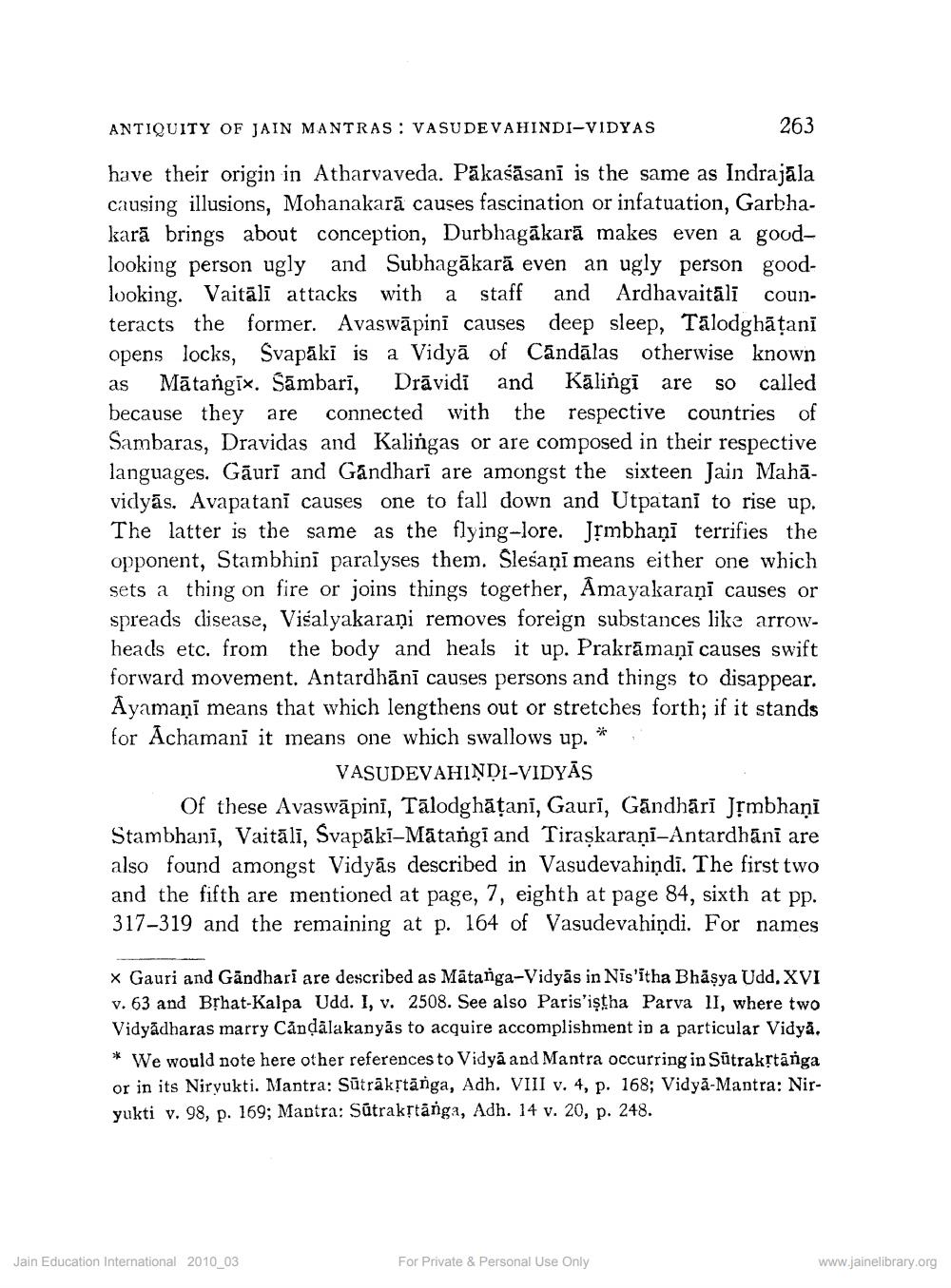________________
ANTIQUITY OF JAIN MANTRAS : VASUDEVAHINDI-VIDYAS
263
have their origin in Atharvaveda. Pākasāsani is the same as Indrajāla causing illusions, Mohanakarā causes fascination or infatuation, Garbhakarā brings about conception, Durbhagākarā makes even a goodlooking person ugly and Subhagākarā even an ugly person goodlooking. Vaitālī attacks with a staff and Ardhavaitāli counteracts the former. Avaswāpini causes deep sleep, Tālodghāțanī opens locks, Svapāki is a Vidyā of Candālas otherwise known as Mātangix. Sambarī, Drāvidi and Kalingi are so called because they are connected with the respective countries of Sambaras, Dravidas and Kalingas or are composed in their respective languages. Gāuri and Gandhari are amongst the sixteen Jain Mahā. vidyās. Avapatani causes one to fall down and Utpatani to rise up. The latter is the same as the flying-lore. Jțmbhaņi terrifies the opponent, Stambhini paralyses them. Slesaņī means either one which sets a thing on fire or joins things together, Amayakaraṇī causes or spreads disease, Visalyakaraṇi removes foreign substances like ar heads etc. from the body and heals it up. Prakrāmaņi causes swift forward movement. Antardhāni causes persons and things to disappear. Ayamaņi means that which lengthens out or stretches forth; if it stands for Achamani it means one which swallows up.*
VASUDEVAHINDI-VIDYĀS Of these Avaswāpinī, Tālodghāțanī, Gauri, Gándhārī Jşmbhaņi Stambhani, Vaitālī, Svapāki-Matangi and Tiraşkaraṇi-Antardhāni are also found amongst Vidyās described in Vasudevahindi. The first two and the fifth are mentioned at page, 7, eighth at page 84, sixth at pp. 317-319 and the remaining at p. 164 of Vasudevahiņdi. For names
x Gauri and Gandhari are described as Matanga-Vidyās in Nis'itha Bhăşya Udd, XVI v. 63 and Bșhat-Kalpa Udd. I, v. 2508. See also Paris'iştha Parva II, where two Vidyadharas marry Cảndalakanyās to acquire accomplishment in a particular Vidya. * We would note here other references to Vidyā and Mantra occurring in Sūtrakstānga or in its Niryukti. Mantra: Sūtrākstānga, Adh. VIII v. 4, p. 168; Vidya-Mantra: Niryukti v. 98, p. 169; Mantra: Sūtrakstānga, Adh. 14 v. 20, p. 248.
Jain Education International 2010_03
For Private & Personal Use Only
www.jainelibrary.org




